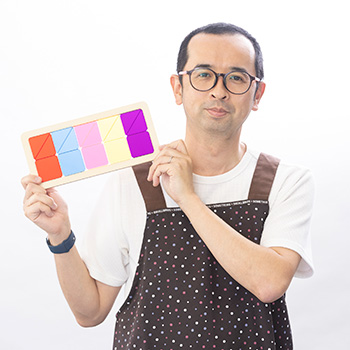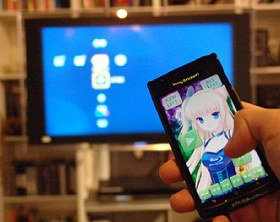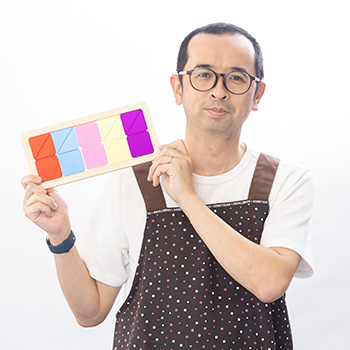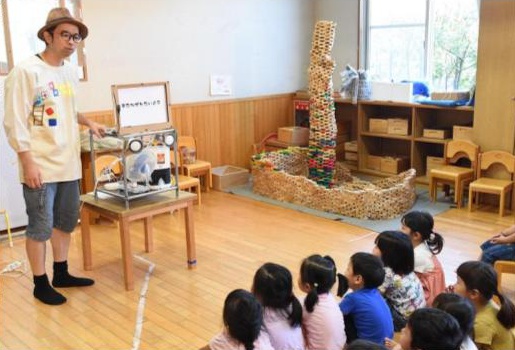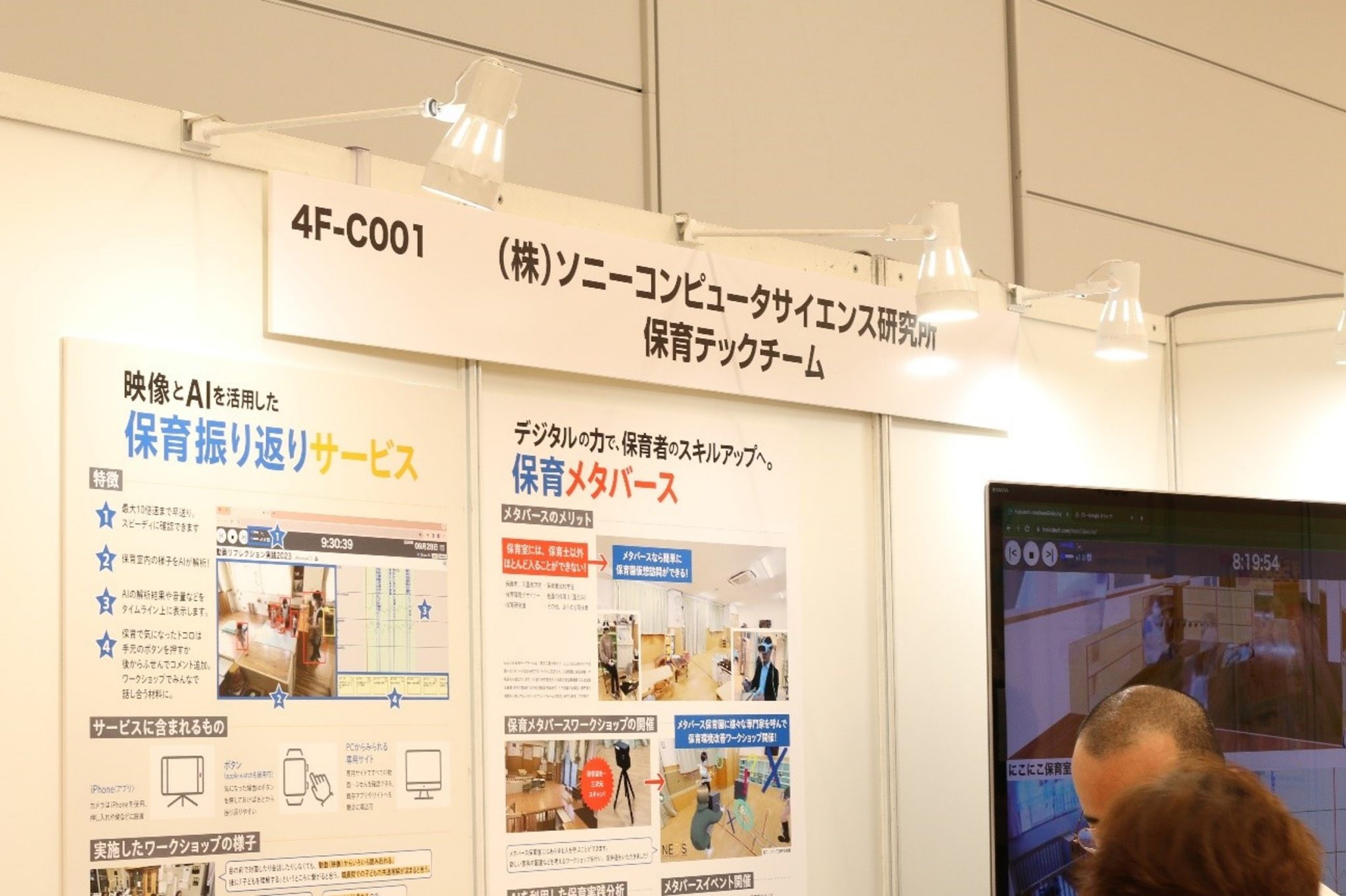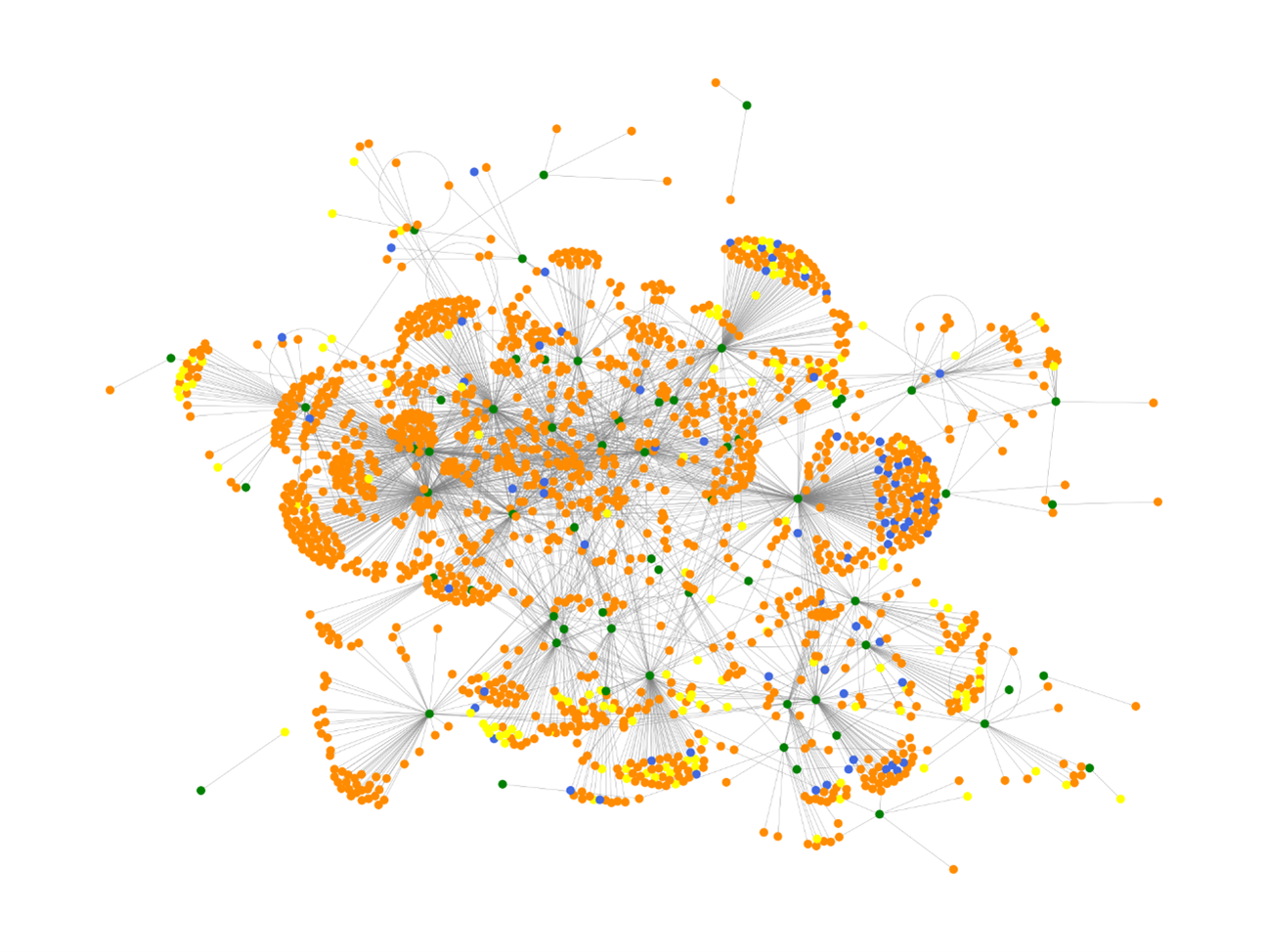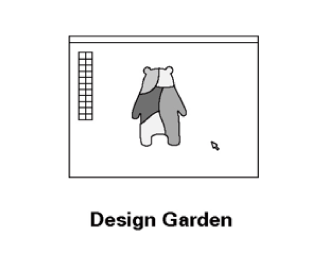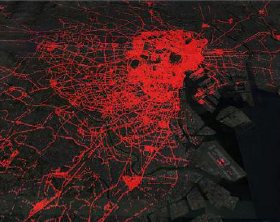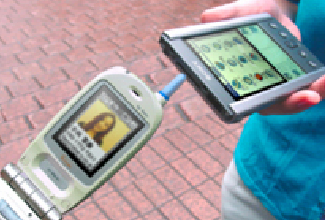家電ネットワークアプリを自作するための開発プラットフォーム
子育てテクノロジー
~豊かな保育実践を支援する~
保育テックとは
保育テックとは、保育とテクノロジーを組み合わせた造語です。
日本の保育現場は伝統的な職場であり、世の中の変化からは遅れがちになってきた側面があります。しかし、昨今の少子化の影響で、保育園同士の競争や統廃合が進み、優れた実践を行っていかなければ立ち行かない時代が来ています。つまり保育の質向上が業界の大きな課題となってきているのです。
保育テックは、その課題に、テクノロジーを導入することで取り組みやすくすることを目的にしています。
私は大学時代コンピュータグラフィックスを専攻していましたが、研究と実世界応用の間に距離を感じており、もっと直接的にユーザーに貢献できる分野を探し、研究放浪することになりました。
その間最も長い時間を費やしたのは、スマートハウス関連活動、特にコンテンツ制作と、バックエンドシステムの開発でした。コンピュータグラフィクスよりは現場に近く、多くの人が私の活動をサポートしてくださったのですが、元来研究者気質の強い私にとって、実業界とのコミュニケーションを多く含むこの活動は自分の限界を感じることが多く、また研究対象としてあまり魅力を感じられず、悶々とした日々が続いていました。
そんな中、2018年にあるコンテストをきっかけに保育の現場(横浜にある、くらき永田保育園)の声から生まれたカメラ機能のついたアプリケーション「HoikuCam(保育カム)」を制作しました。その後、くらき永田保育園主催のイベントに参加したり、園のイベント向けに演出装置を制作するなど関係が深まるうちに、保育業界に研究分野としての興味を感じるようになりました。保育の現場にテクノロジーを持ち込む「保育テック」によって、発達過程を先端技術を用いて客観的に分析し、その振り返りと新たな実践を通じて子育ての質が向上していく可能性があると考えています。
ベビーテックと呼ばれる家庭内育児へのテクノロジー導入は、保育テックとは似て非なる側面もあり比較的進んでいると考えていますが、子どもにとっては家庭も保育園も環境の一部であり、緊密に連携しながら子どもを育てていく必要があります。保育テックでは、そのような家庭との連携についてもスコープに入れています。
保育テックが必要とされる背景
日本の多くの保育現場は、自らの実践をより良いものにするために、日々努力しています。
しかし、実践活動を効果的に改善させるためのサイクル、例えば経験学習やPDCAのような方法論が機能している現場は、必ずしも多くありません。これには以下に示すような理由があるのではないかと我々は考えています。
- 自分の実践を観察・評価されることに慣れていない現場が多い
- 現場活動中に新たな挑戦をする余裕に乏しい
- 養護意識が強く、日々改善していくというサイクルを採用しづらい
これらの課題はそれぞれに根が深く、特効薬があるわけではありません。また私たちはもともと保育実践の専門家ではなく、現在に至る保育業界の文脈や価値観・制約を十分に理解しているとも言えません。
しかし保育業界の外部にいた人間だからこそできる保育実践への貢献を目指して活動をしています。
自分の実践に対する観察・評価への抵抗感については、それが自分にとってメリットがあると感じてもらうことが重要だと考えています。そのため、観察・評価が自他の実践への理解を促し、より優れた実践を行うことが可能になるという、経験学習と結合したツールを開発しています。
現場活動中の挑戦が難しいという点に関しては、自分のスキルが向上することで実践が楽になるという面もありますが、制度面や園の運用ポリシーからの影響もあり、一筋縄ではいきません。経営層や実践者との対話をしながら、現場ごとの打開策を見出していくことが大切です。挑戦のための余裕を確保してもらうためにも、確保するだけの価値がある、と現場に思ってもらえることが必要となります。
養護意識とは、子どもを安全に預かる施設であるという意識を指しています。養護はもちろん保育園の機能の中核の一つで重要なことは疑いようもないのですが、その考えを一歩進めると、子どもが安心・安全であれば、特に実践を改善する必要はないという、保守的な考えに陥りがちです。しかし、いかなる組織であっても、状況に合わせて変化していくことは重要ですし、こと保育園は今後の少子化の影響で競争が激化の一途を辿るので、現場実践を向上させていくことが必要です。また、子育ては変化していくものです。子育ての環境や意識、方法論などの変化に対応して提供するサービスも変化させ、子どもがより社会的文脈に適合した学びを得られるよう取り計らうことも、保育園のもう一つの大きな機能であるはずです。(保育園のこの二面性を、保育所保育指針では「養護及び教育を一体的に行う」という言葉で表現しています)
そのために必要なのが、日々の実践の振り返りであり、そこからの気づき、そして新しい実践へと結びつけていく、経験学習サイクルだと考えています。詰まるところ、私たちの活動の中心は、保育現場で経験学習サイクルをいかに回していくか、そのための道具を提供することなのです。
私は2020年には保育士の資格も取り、それから4年間、くらき永田保育園にてパート保育士として現場経験も積みました。2022年にはソニーCSL内で保育テックチームが結成されました。チームとして動けるようになったメリットは大きく、研究上がりのプロトタイプ制作だけでなく、社会実装を視野にいれた開発や対外関係の構築ができるようになってきました。
保育に出会ったことで、研究のための研究でなく、目にみえる相手のために知恵を絞ることができるのはとても幸せなことです。
それゆえの難しさももちろんありますが、この分野に多少なりとも貢献できるよう、微力を尽くしたいと思っています。
保育テックチームでは、以下の研究テーマに取り組んでいます。
保育活動を評価して、実践者にフィードバックすることで、日々の学習サイクルを効果的に回す
デューイ(1859-1952)の提唱した経験学習は、その後様々なフィールドでの実践を経て精緻化され、現場活動を通じて人が学びを得るプロセスの理論的な礎として、現在も活用されています。経験学習の発展に寄与した研究者としては、ショーン(1930-1997)やコルブ(1939-)の名がよく挙がりますが、私たちは特にリフレクション(省察)を重視する立場から、コルトハーヘン(1949-)のALACTモデルをベースとし、リフレクションの専門家とともに、現場で役立つツールを開発しています。
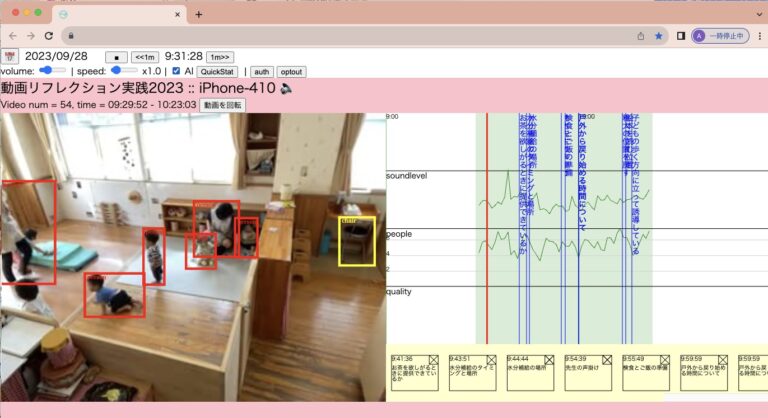
ALACTモデルでは、行為を振り返り、そこから本質的な諸相への気づき(Awareness of Essential Aspects)を得ることが大切で、難しいところでもあります。私たちは、行為の振り返りを効率的、具体的、客観的に行うために、現場活動中に動画撮影を行い、実践中にリフレクションのためのトリガーを入力したり、事後に付箋を入れる手段を提供することで、技術によるサポートを行います。また、動画や声掛けをAIにより継続的に自動分析し、評価することにより、注目すべき場面を自動的に発見したり、毎日の実践に省察を組み込むことを可能にします。
また、省察セッションのファシリテーションを私たちが行うこともあるので、そのためのスキルも磨いています。最終的に現場活動が改善することがゴールなので、そのための手段が自動か手動か、にはあまりこだわりはありません。必要に応じて様々な方法を組み合わせていきたいと思っています。
保育士のスキルを抽出し、自他の実践者のスキル向上に役立てる
保育士のスキルは、過小評価されています。多数の子どもたちを観察しつつ、養護(安全・安心面)と教育(心身の発達)のバランスをとりながら、程よく関わっていくスキルを身につけるには、それなりに時間と経験の蓄積が必要と考えられています。
刻々と状況が変化し、毎回異なる場面が訪れる保育現場で必要とされるスキルは抽象化・言語化が難しく、それゆえに効率的に学ぶことに障壁があります。私たちは、具体的な場面をベースに話し合いをしたり、VR技術を用いて個人の行動や信念の差を際立たせることによって、保育スキルの可視化を行い、それを用いて学習の効率が上がるようなツールを開発しています。
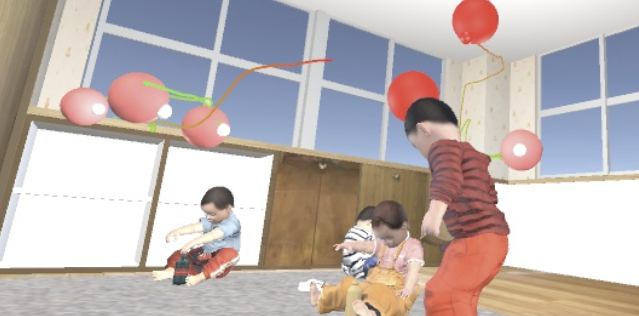
家庭との連携・情報共有を図り、総合的な子育て環境の向上を図る
私たちが貢献したいと考える現場は保育園ですが、子どもたちにとっては家庭と保育園、どちらも重要な場であり切り離すことはできません。
保育園という存在を定義している「保育所保育指針」にも、「保育所は〜家庭との緊密な連携の下に〜養護及び教育を一体的に行う」と書かれており、保育所と家庭との連携を大事にすることが必要です。
私たちは、保育現場から得られた知見を家庭とも共有し、あるいは逆に、家庭内の情報を保育園と共有する手段も提案し、全方位的に子育てを支援するテクノロジーの開発を行っています。
Projects
Keywords
Related News
Co-design in virtual environments with 3D scanned childcare rooms in social virtual reality
同じリサーチエリアの別プロジェクト
Human Augmentation
生物間相互作用データセットをオープンデータとして公開しました
Wi-Fi の電波で現在位置を推定するサービスの提供
機器同士をつなぐ直観的でわかりやすいインターフェース
